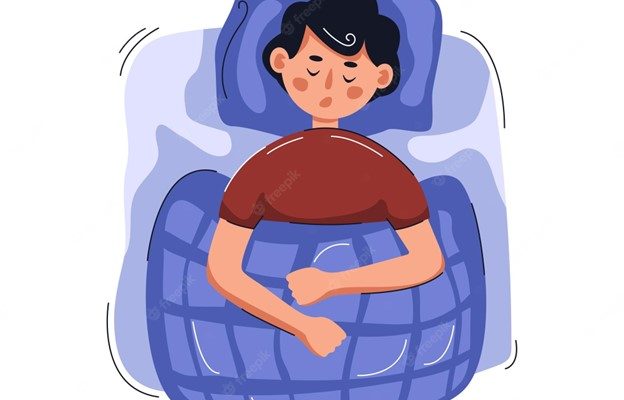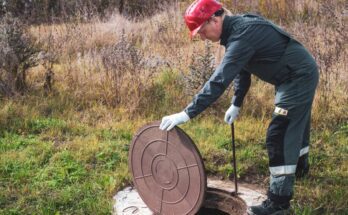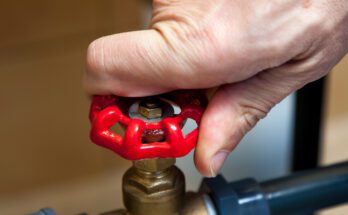Maybe you’ve noticed that you tend to nod off while watching TV, or after a few drinks, you feel drowsy. Perhaps it seems like everyone at work has some type of sleep problem. You could chalk it up to stress or lack of sleep, but these symptoms may be an indicator of a more serious issue. If so many people have these same issues and are unable even to discuss them in public without feeling embarrassed, then there must be something seriously wrong with the way we all sleep. The good news is that many people struggle with poor sleep habits because they often aren’t aware of it until something causes them great distress. The bad news is that poor sleep is highly prevalent and can lead to other health problems if not addressed. So how can you tell if you have a problem? Check out these red flags and ask your doctor about testing for apnea:
Blood in Stool at Night
Many people have mild sleep-disordered breathing, or mild sleep apnea, and don’t even realize it. The condition, called a nocturnal polyp, occurs when you have a large amount of stuffy mucus in your nose while you sleep. This stuff may be made of blood and other particles. Symptoms of nocturnal polyps include a bloody stool at night and a feeling of having a lump in your throat while you sleep. If you have a stool with blood, you should consult your doctor. If a polyp is found during a routine procedure, like an endoscopy, it may be removed. However, you may also be able to treat the condition by simply turning your head away from the wall while sleeping. If the condition isn’t treated, it can worsen and need to be removed.
Snoring or Noisy Breathing During Sleep
While mild sleep apnea can cause snoring and noisy breathing during sleep, severe sleep apnea is characterized by loud and frequent pauses in breathing during sleep. This is what can cause you to feel chronically tired or have a low-energy day. People with sleep apnea have decreased levels of oxygen in the blood during sleep, which contributes to snoring, lack of rest, and daytime drowsiness. There are many potential causes of snoring and noisy breathing during sleep, from a narrow airway in the throat to jaw misalignment, but sleep apnea is generally linked to chronic and/or severe sleep-disordered breathing.
Excessive Daytime Sleepiness
Sleep apnea symptoms may cause you to feel chronically sleepy during the day. This is an indication that the condition has become more serious and is causing excessive daytime sleepiness. This can affect your ability to drive safely or work effectively. If you don’t realize that you’re sleep-deprived, you may not also realize that you’re sleepy. This may cause you to feel sluggish and frustrated, even at work. Sleep apnea can result in a vicious cycle of sleepiness, which can make you even less aware of how sleep-deprived you are.
Sleep Paralysis or Night Terrors
Sleep paralysis or night terrors can both be symptoms of sleep apnea. This abnormal paralysis of your muscles during sleep can cause you to feel as if you are lying in bed, but cannot move. You may feel as if you are in a dream and cannot wake yourself up. You may also feel as if you’re falling or being pulled down into the bed, or as if you’re being choked. This feeling of paralysis and of being choked or pulled down into the bed is a common symptom of sleep apnea.
Other Common Symptoms of Sleep Apnea
- A loud or frequent snoring or loud breathing at night
- Excessive daytime sleepiness
- Poor concentration or mental fogginess
- Muscle cramps
- Excessive sweating or thirst
- Frequent visits to the bathroom during the night
- Head or chest pain
Signs Your Doctor May Be Looking For in a Diagnosis
- Frequent struggles to fall asleep
- Frequent awakenings during the night
- Excessive daytime sleepiness
- Low energy levels
- A feeling of being fatigued during the day
- Irregular or heavy breathing while asleep
How to Treat Sleep Apnea
If you are diagnosed with sleep apnea, you should consult a doctor immediately. This is a serious condition and can be addressed with a sleep study and, if necessary, a breathing device that is worn at night. Once you’re properly diagnosed, you can treat the condition effectively. There are many treatments for sleep apnea and you should try many different things until you find what works best.
This includes:
- Chewing gum during the day and taking it before bed to reduce mouth breathing and increase airway size
- Wearing an adjustable anti-snoring mouthpiece
- Sleeping in a quiet and comfortable room
- Changing your sleeping position from one side to the other
- Not drinking liquids before bed
- Using prescription sleep medication, if prescribed
- Avoiding sleeping during strenuous activity
- Avoiding alcohol
- Avoiding strenuous exercise less than an hour before bedtime
- Avoiding medications that have strong side effects, such as antidepressants
- Avoiding strenuous exercise less than an hour before bedtime
Take Home Messages
As soon as you notice that you’re not sleeping as well as you’d like, it’s important to take steps to address it. Poor sleep is associated with many health problems, including diabetes, heart disease, and depression. Poor sleep can be frustrating and confusing, but once you get started on the right path, it can be easier than you think. It’s important to take your sleep apnea seriously, as it can lead to many other health problems if left untreated. If you have sleep apnea, it’s important to keep track of your breathing during the night and make sure that it is regular and unbroken. You can do this by making sure that your airway is always open, even if only for a moment.



